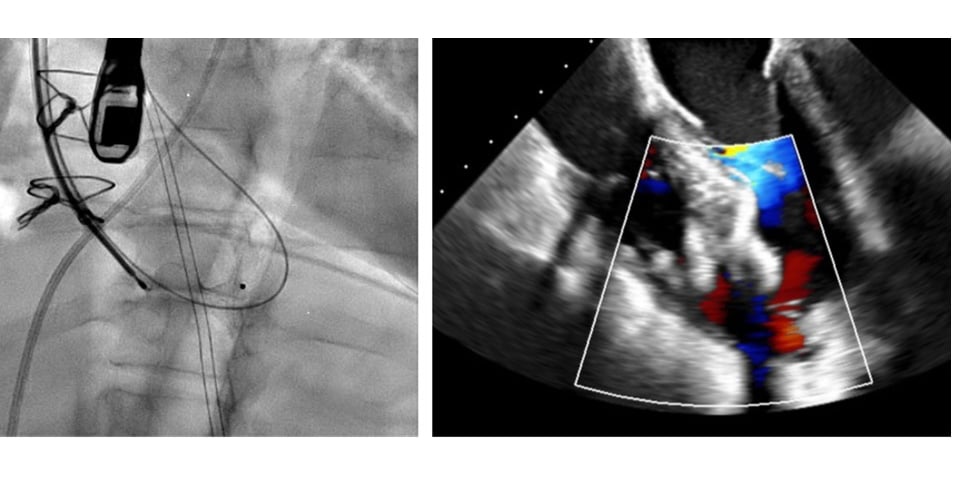Curriculum
 Diagnostic technique experience includes advanced hemodynamic evaluation, intravascular ultrasound, coronary pressure wire evaluation, and optical coherence tomography, in addition to learning how to teach general cardiology fellows diagnostic cardiac catheterization. Approximately 90% of coronary angiography procedures are performed via the radial approach. The program also offers a core experience in a variety of coronary interventional techniques including percutaneous transluminal coronary angioplasty, stent implantation, cutting balloon angioplasty, venous and arterial coronary graft intervention, distal embolic protection devices, rheolytic thrombectomy, and rotational atherectomy. Interventional fellows are also trained in the use of mechanical circulatory support devices including intra-aortic balloon counterpulsation and percutaneous left ventricular assist devices as well as cardiac valvuloplasty, transcatheter closure of intracardiac communications, and pericardiocentesis.
Diagnostic technique experience includes advanced hemodynamic evaluation, intravascular ultrasound, coronary pressure wire evaluation, and optical coherence tomography, in addition to learning how to teach general cardiology fellows diagnostic cardiac catheterization. Approximately 90% of coronary angiography procedures are performed via the radial approach. The program also offers a core experience in a variety of coronary interventional techniques including percutaneous transluminal coronary angioplasty, stent implantation, cutting balloon angioplasty, venous and arterial coronary graft intervention, distal embolic protection devices, rheolytic thrombectomy, and rotational atherectomy. Interventional fellows are also trained in the use of mechanical circulatory support devices including intra-aortic balloon counterpulsation and percutaneous left ventricular assist devices as well as cardiac valvuloplasty, transcatheter closure of intracardiac communications, and pericardiocentesis.
The fellow will gain experience in the technical aspects of all interventional procedures, pre-procedure evaluations, procedural consultations and post-procedural care. The fellow will also consult on acutely ill patients with cardiac conditions in an emergency setting.